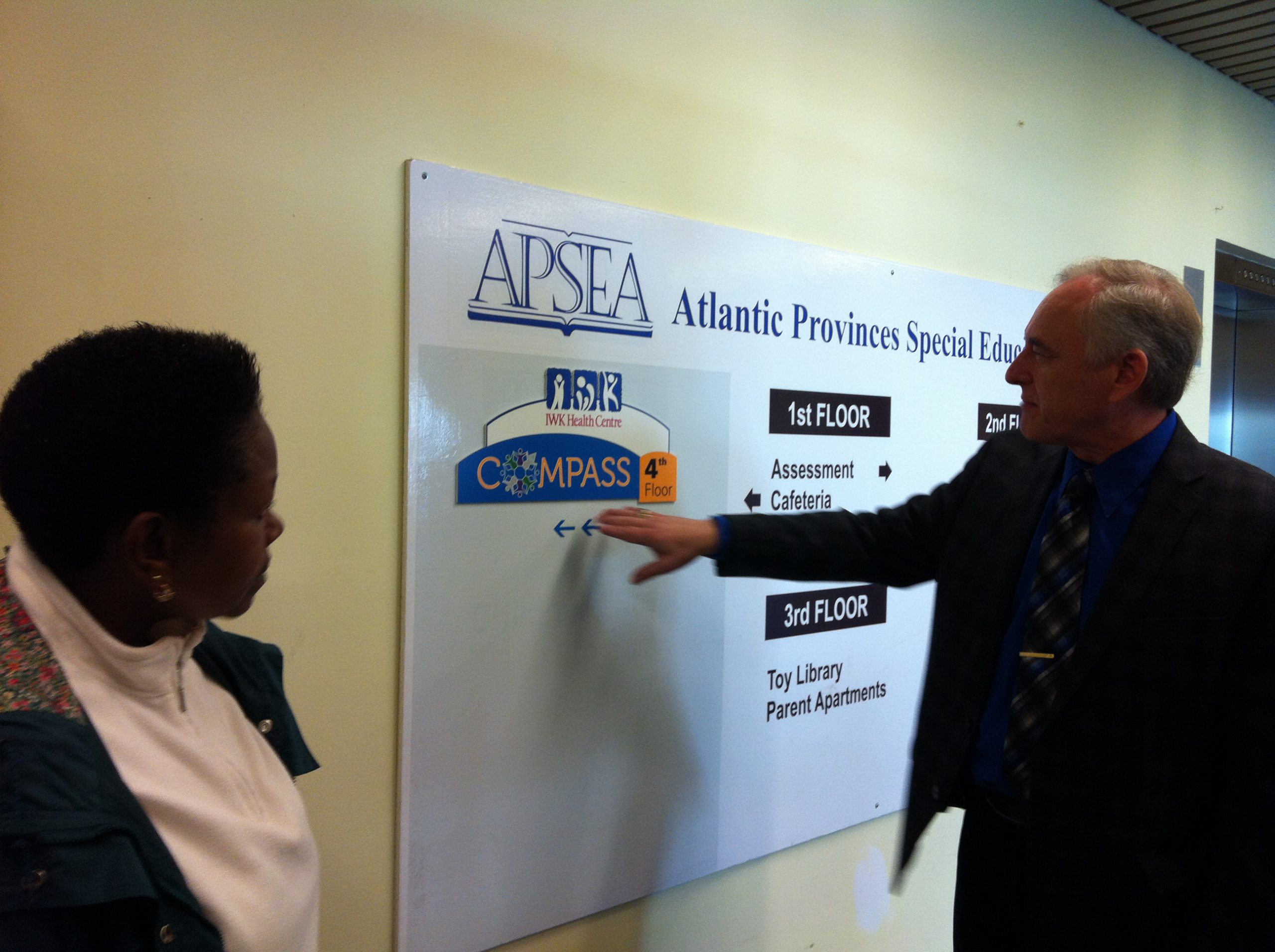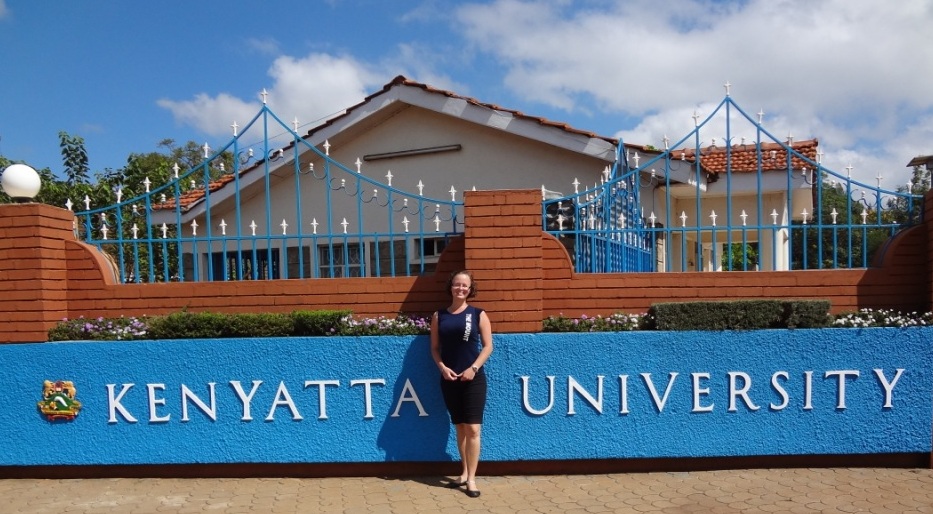Annerose Wang’anga’a ready to confront barriers to accessible education in Kenya
 Annerose Wang’ang’a says it’s the small things in Halifax that strike her most — accessible buses, extra wide doors, paved sidewalks with properly-cut curbs. In Kenya, there are no accessible buses or motorized wheelchairs, which means navigating the city with a disability can be a challenge.
Annerose Wang’ang’a says it’s the small things in Halifax that strike her most — accessible buses, extra wide doors, paved sidewalks with properly-cut curbs. In Kenya, there are no accessible buses or motorized wheelchairs, which means navigating the city with a disability can be a challenge.
“In Kenya, it can be difficult to get around if you are disabled, as no modified transportation network exists,” she says. “Halifax and the Mount really struck me as places where you can get around much easier.”
(Photo L-R: Annerose Wang’ang’a; Bertram R. Tulk, Superintendent of APSEA)
Annerose has been part of the Mount community since early September as part of the Students for Development (SFD) Internship program funded by the Canadian International Development Association (CIDA). In Nairobi, she’s a PhD student at one of the nation’s leading post-secondary institutions, Kenyatta University, where her research is focused on learners with multiple disabilities.
“The Mount signed a Memorandum of Understanding (MOU) with Kenyatta University in 2011,” says Ifeatu Efu, International Programs Coordinator at the Mount. “As part of the agreement, Annerose has come to the Mount as an intern to learn about the Mount’s approach to teaching students with exceptionalities. A number of Mount education students are also travelling to Kenya to do their practicum placements in Nairobi.”
One of Annerose’s research goals during her time in Halifax is to better understand the Canadian approach to integrating students with special needs into the classroom.
“In Kenya, integration of learners with visual impairment began in the 1980’s. Other learners with milder forms of disability are gradually being integrated into public schools. Here, in Canada, many policies have been adopted earlier. I see the special washrooms, the tools for adaptive learning. I want to see our teachers and our classrooms begin to prepare to include such children in Kenya.”
Annerose has been personally affected by the issue of special needs education. She had a son with muscular dystrophy who passed on in 2006. Professionally, she holds a Master’s degree in Special Education with a focus on visual impairment, and currently works at Kilimani Special Unit in Nairobi.
“I’m most interested in developing teaching strategies for learners with multiples disabilities. We have teachers who are trained in maybe one disability. I am looking at combinations – cerebral palsy and mental disabilities; blindness and autism; and blindness and deafness in combination.”
During her time at the Mount, she has worked closely with Dr. Mary Jane Harkins, Director of Teacher Education in the Mount’s Faculty of Education. Dr. Harkins has also conducted research into student exceptionalities and has played an important role in deepening the Mount’s relationship with Kenyatta University.

(Photo: Mount student Kristin Knight at Kenyatta University in Nairobi)
One of the highlights for Annerose was to see the Atlantic Provinces Special Education Authority (APSEA), a specialized school in Halifax for children and youth who are hard of hearing, blind, deaf, or deaf-blind.
“I was impressed by the use of assistive technologies in the classroom. Also, the collaborative, multi-disciplinary approach to integrating students.”
While she is optimistic that change is coming to Kenya in its approach to serving special needs students, she believes it will be an incremental, measured approach.
“We must take it step by step. Teachers are not ready for full integration. They must be prepared and properly trained. Other measures must be in place, including having appropriate support services, accessible facilities, and the provision of a disability-friendly environment. The government must take steps to fully implement its own policy on special needs education.”
Asked about her additional thoughts about her time at the Mount, Annerose commented on the Mount’s very visible commitment to the advancement of women.
“I am hopeful that in Kenya we can continue to address gender inequality, as the education of women and girls is important in moving our country away from poverty. Education is a major part of social development. The Mount’s many activities related to gender equality are very inspiring.”
Annerose will return to Nairobi in late December.